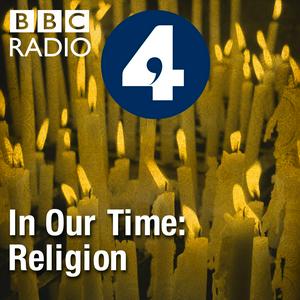Melvyn Bragg and guests explore typology, a method of biblical interpretation that aims to meaningfully link people, places, and events in the Hebrew Bible, what Christians call the Old Testament, with the coming of Christ in the New Testament. Old Testament figures like Moses, Jonah, and King David were regarded by Christians as being ‘types’ or symbols of Jesus.
This way of thinking became hugely popular in medieval Europe, Renaissance England and Victorian Britain, as Christians sought to make sense of their Jewish inheritance - sometimes rejecting that inheritance with antisemitic fervour. It was a way of seeing human history as part of a divine plan, with ancient events prefiguring more modern ones, and it influenced debates about the relationship between metaphor and reality in the bible, in literature, and in art. It also influenced attitudes towards reality, time and history.
With
Miri Rubin, Professor of Medieval and Early Modern History at Queen Mary, University of London
Harry Spillane, Munby Fellow in Bibliography at Cambridge and Research Fellow at Darwin College
And
Sophie Lunn-Rockliffe, Associate Professor in Patristics at Cambridge.
Producer: Eliane Glaser
Reading list:
A. C. Charity, Events and their Afterlife: The Dialectics of Christian Typology in the Bible and Dante (first published 1966; Cambridge University Press, 2010)
Margaret Christian, Spenserian Allegory and Elizabethan Biblical Exegesis: The Context for 'The Faerie Queene' (Manchester University Press, 2016)
Dagmar Eichberger and Shelley Perlove (eds.), Visual Typology in Early Modern Europe: Continuity and Expansion (Brepols, 2018)
Tibor Fabiny, The Lion and the Lamb: Figuralism and Fulfilment in the Bible, Art and Literature (Palgrave Macmillan, 1992)
Tibor Fabiny, ‘Typology: Pros and Cons in Biblical Hermeneutics and Literary Criticism’ (Academia, 2018)
Northrop Frye, The Great Code: The Bible and Literature (first published 1982; Mariner Books, 2002)
Leonhard Goppelt (trans. Donald H. Madvig), Typos: The Typological Interpretation of the Old Testament in the New (William B Eerdmans Publishing Co, 1982)
Paul J. Korshin, Typologies in England, 1650-1820 (first published in 1983; Princeton University Press, 2014)
Judith Lieu, Image and Reality: The Jews in the World of the Christians in the Second Century (T & T Clark International, 1999)
Sara Lipton, Images of Intolerance: The Representation of Jews and Judaism in the Bible Moralisee (University of California Press, 1999)
Montague Rhodes James and Kenneth Harrison, A Guide to the Windows of King's College Chapel (first published in 1899; Cambridge University Press, 2010)
J. W. Rogerson and Judith M. Lieu (eds.), The Oxford Handbook of Biblical Studies (Oxford University Press, 2008)
In Our Time is a BBC Studios Audio production


